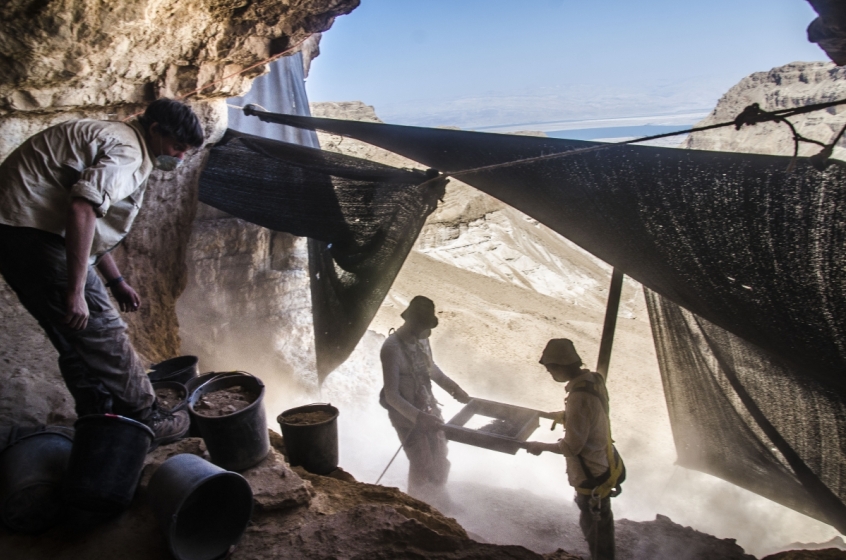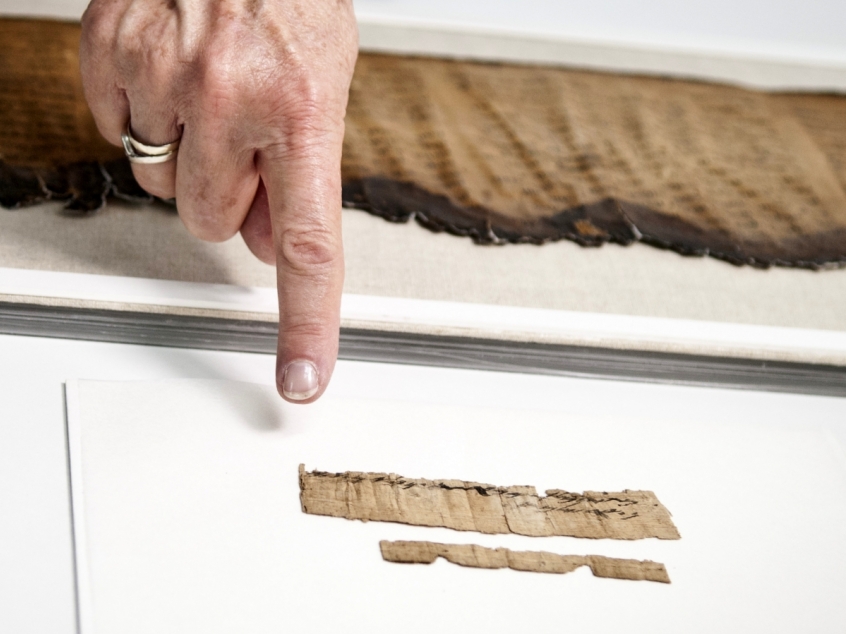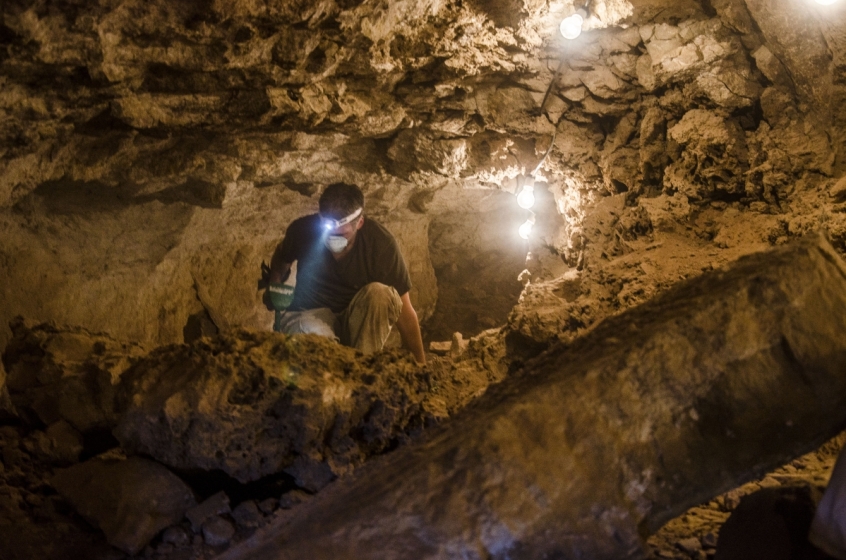
Israeli investigators have seized a rare scroll mentioning the city of Jerusalem from the time of the First Temple in the seventh century BC.
The mention of Jerusalem is the first ever found outside the Bible.
It is significant because it shows a woman, a maidservant of the King, to be wielding considerable authority.
Inspectors from the Israel Antiquities Authority, which has been excavating the Cave of Skulls in the Judean desert, seized the papyrus.
They found it to be from the "King's maidservant" and to include the earliest reference to Jerusalem in a non-biblical document.
The ancient Hebrew reads: [מא]מת. המלך. מנערתה. נבלים. יין. ירשלמה, which translates as: "From the King's maidservant, from Naʽarat, jars of wine, to Jerusalem."
The papyrus had been "illicitly plundered" from one of the Judean Desert caves by a band of antiquities robbers, the authority said at a press conference in Israel this morning.
It was recovered in a complex operation by the Unit for the Prevention of Antiquities Robbery.

It is a shipping document showing payment of taxes or transfer of goods to storehouses in Jerusalem, the capital city of the Kingdom of Judea.
Dr Eitan Klein, deputy director of the robbery prevention unit, said: "The document represents extremely rare evidence of the existence of an organized administration in the Kingdom of Judah. It underscores the centrality of Jerusalem as the economic capital of the kingdom in the second half of the seventh century BCE. According to the Bible, the kings Menashe, Amon, or Josiah ruled in Jerusalem at this time. However, it is not possible to know for certain which of the kings of Jerusalem was the recipient of the shipment of wine".
Israel Prize laureate and biblical scholar Professor Shmuel Ahituv said: "It's not just that this papyrus is the earliest extra-biblical source to mention Jerusalem in Hebrew writing; it is the fact that to date no other documents written on papyrus dating to the First Temple period have been discovered in Israel, except one from Wadi Murabbaʽat.
"Also outstanding in the document is the unusual status of a woman in the administration of the Kingdom of Judah in the seventh century BCE".
Israel Hasson, director of the Israel Antiquities Authority, said: "Every day robbers go into the desert in order to search out and plunder ancient documents such as the papyrus that was exposed. The state has to mobilise and allocate the necessary resources in order to embark upon a historic operation together with the public, and carry out systematic excavations in all of the Judean Desert caves."

He said it indicates there are still artifacts of tremendous importance to the heritage of Israel waiting to be found in the Judean Desert caves.













